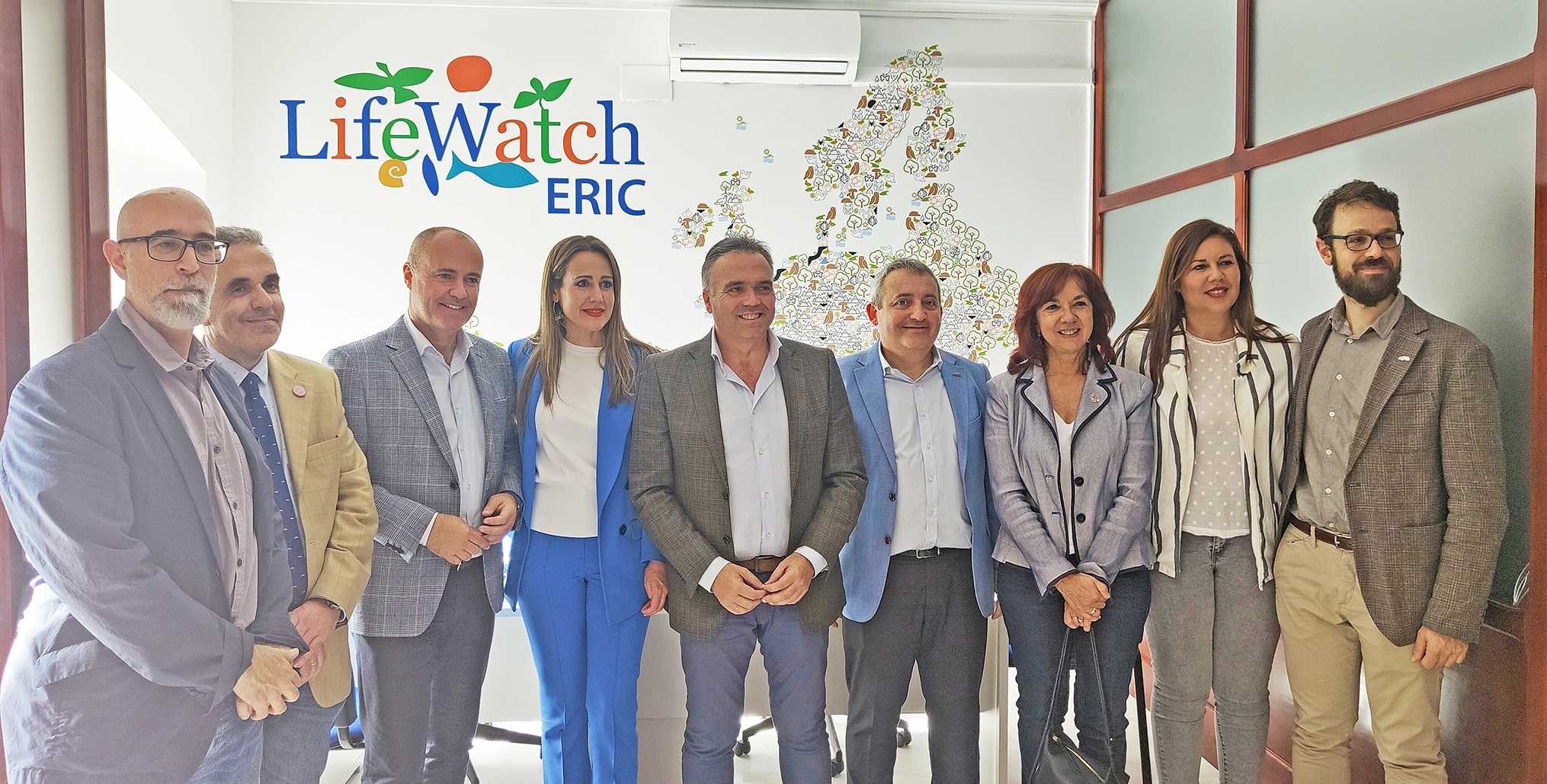
On 31 March 2023, in the Huelvan municipality of La Palma del Condado, known for its agricultural and wine-growing activity, the office of the International Centre for Development and Innovation in Agroecology and Agrobiodiversity (CIDIA) was inaugurated. CIDIA aims to become an internationally-relevant cutting-edge centre in the innovation and development of sustainable agricultural practices, in line with the EU Green Deal, the Farm to Fork strategy, the EU Biodiversity Strategy 2030, the new EU Common Agricultural Policy (CAP) and the UN Sustainable Development Goals.
CIDIA’s general objective is the development of studies, tools and demonstrative experiences that foster the transition towards specific agroecological practices with special emphasis on protected areas and areas that allow for the balancing of socio-economic development with the objectives of environmental conservation and European policies. Agroecology researchers from LifeWatch ERIC will work together with researchers from the Agroecosystems History Laboratory at the Pablo de Olavide University, in Seville.
LifeWatch ERIC is promoting CIDIA within the SmartFood initiative, which is one of the ongoing ERDF projects in collaboration with the Ministry of Agriculture, Fisheries, Water and Rural Development of the Junta de Andalucía, through Agricultural and Fisheries Management Agency of Andalusia (AGAPA). The subtitle of SmartFood is “biodiversity, ecosystem services and digitisation axes of agricultural, forestry and fishing activity in Andalusia”. Its objective is to make technological monitoring infrastructures available to the sector to carry out innovative monitoring of the effects they have on the environment the different practices of exploitation of natural resources, and the generation of new knowledge for the sustainable management of the ecosystems involved.
At the inauguration, LifeWatch ERIC CTO, Juan Miguel González-Aranda, thanked the regional and local authorities for their collaboration, as well as the involvement of the Universities of Huelva and Pablo de Olavide, in making the start-up a reality. He stressed that the initiative “puts advanced technologies and knowledge at the service of farmers and ranchers, which must be accessible to all citizens”.
Among CIDIA’s lines of action, the following stand out:
-Developing the evaluation methodologies and the latest-generation ICT tools necessary for ecological evaluation, including the socioeconomic valuation of agro-ecosystem services based on the developments carried out in SmartFood and applying cutting-edge technologies such as blockchain (LifeBlock);
-Defining good sustainable agricultural practices adapted to the selected experimental sites as well as those designed for monitoring and evaluation of their results through the use of ICT;
-Developing demonstrative experiences in the Doñana environment that allow for the balancing of agriculture development with conservation objectives, oriented to the problem of water overexploitation;
-Developing standards and procedures for optimised land use and farm management in association with habitats and species of special conservation in protected areas and the eco-scheme certification methodology of the EU CAP.
The inauguration was headed by Juan Miguel González Aranda, LifeWatch ERIC CTO; José Carlos Álvarez Martín, Managing Director of AGAPA, and Manuel García Félix, Mayor of La Palma del Condado. Together with them were Bella Verano Domínguez, Delegate of the Junta de Andalucía in Huelva; José Enrique García Ramos, Director of Research at the University of Huelva; Antonia Jiménez Rodríguez, Vice Chancellor for Research, Transfer and Doctorates at Pablo de Olavide University; Manuel Jiménez Sánchez, General Director of Research at Pablo de Olavide University; Manuel González de Molina, Professor at the Pablo de Olavide University, where he directs the Agroecosystems History Laboratory; José Manuel Ávila, LifeWatch ERIC Agroecology Coordinator, and Rocío Moreno Domínguez, LifeWatch ERIC ICT-Core Federtech ERDF Project Executive Coordinator.